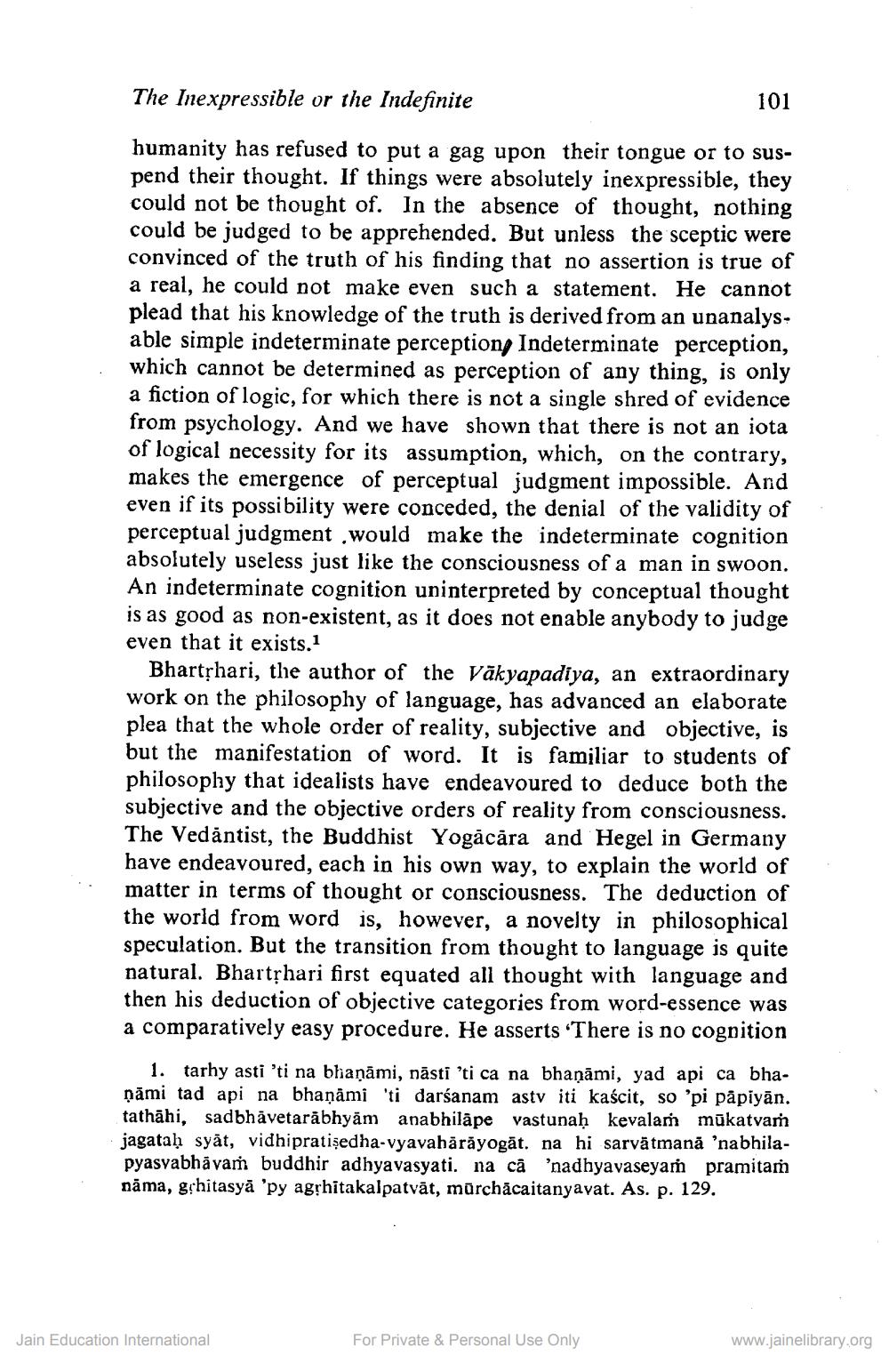________________
The Inexpressible or the Indefinite
101
humanity has refused to put a gag upon their tongue or to suspend their thought. If things were absolutely inexpressible, they could not be thought of. In the absence of thought, nothing could be judged to be apprehended. But unless the sceptic were convinced of the truth of his finding that no assertion is true of a real, he could not make even such a statement. He cannot plead that his knowledge of the truth is derived from an unanalys: able simple indeterminate perception, Indeterminate perception, which cannot be determined as perception of any thing, is only a fiction of logic, for which there is not a single shred of evidence from psychology. And we have shown that there is not an iota of logical necessity for its assumption, which, on the contra makes the emergence of perceptual judgment impossible. And even if its possibility were conceded, the denial of the validity of perceptual judgment would make the indeterminate cognition absolutely useless just like the consciousness of a man in swoon. An indeterminate cognition uninterpreted by conceptual thought is as good as non-existent, as it does not enable anybody to judge even that it exists. 1
Bhartshari, the author of the Vākyapadiya, an extraordinary work on the philosophy of language, has advanced an elaborate plea that the whole order of reality, subjective and objective, is but the manifestation of word. It is familiar to students of philosophy that idealists have endeavoured to deduce both the subjective and the objective orders of reality from consciousness. The Vedāntist, the Buddhist Yogācāra and Hegel in Germany have endeavoured, each in his own way, to explain the world of matter in terms of thought or consciousness. The deduction of the world from word is, however, a novelty in philosophical speculation. But the transition from thought to language is quite natural. Bhartshari first equated all thought with language and then his deduction of objective categories from word-essence was a comparatively easy procedure. He asserts .There is no cognition
1. tarhy asti 'ti na bhaņāmi, nāsti 'ti ca na bhaņāmi, yad api ca bhanāmi tad api na bhaņāmi 'ti darśanam asty iti kaścit, so 'pi pāpiyān. tathāhi, sadbhāvetarăbhyām anabhilāpe vastunaḥ kevalam mūkatvam jagataḥ syāt, vidhipratişedha-vyavahārāyogāt. na hi sarvātmană 'nabhilapyasvabhāvam buddhir adhyavasyati. na cã 'nadhyavaseyam pramitam nāma, gļhitasyā 'py agļhitakalpatvāt, mārchācaitanyavat. As. p. 129.
Jain Education International
For Private & Personal Use Only
www.jainelibrary.org




